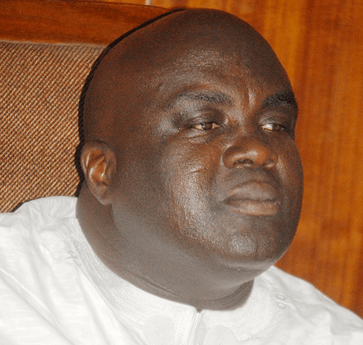
By Samuel LARTEY(Prof)
A recent development in the United States has sparked intense discussions: President-Elect Donald Trump’s appointee, Hegsett, is under scrutiny for his history with alcohol. This revelation reignites a broader conversation about the profound impact of alcohol on personal and professional lives.
When questioned about his own decision to abstain from drinking, former President Donald Trump delivered a striking statement: “I don’t drink because alcohol can be devastating.” His words resonate deeply, reflecting the destructive potential of alcohol, not only for individuals but for families, workplaces, and entire communities.
Alcohol has the power to erode talent, disrupt careers, and compromise contributions to society. While some find ways to manage its influence, others are consumed by its devastating effects. This feature explores the far-reaching implications of alcoholism on human potential, focusing on its impact across business, public, and tertiary sectors, enriched by Ghana’s experiences and global perspectives.
The Drunkards Association of Ghana
The Drunkards Association of Ghana, also recognised as the Beverage Consumers and Bar Owners Association of Ghana, is a dynamic organization that serves as the voice of both alcohol consumers and the establishments that cater to them.
Committed to advocating for the interests and welfare of its members, the association plays an active role in driving initiatives that enhance the experiences of its diverse constituency. Whether championing better industry standards, fostering responsible consumption, or supporting local businesses, the association is dedicated to shaping a more vibrant and sustainable sector.
Initiatives and Practices
- E-Drink Application:
In February 2022, the association launched the “E-Drink” app, designed to allow members to order alcoholic beverages from nearby drinking spots through a digital platform. This initiative aims to reduce the risk of accidents among members who might otherwise travel while intoxicated, thereby enhancing their safety and well-being.
- Election Day Directives:
The association has issued directives instructing all bar owners and operators to close their establishments from 6:00 AM to 6:00 PM on election days. This measure is intended to maintain order and ensure the peace and sanity of voters during the election process.
Impact on Businesses, Talents, Capabilities, Productivity, and Well-being
The practices of the Drunkards Association of Ghana have multifaceted impacts on various aspects of society:
- Business Operations:
By promoting responsible drinking and implementing measures like the E-Drink app, the association helps reduce alcohol-related accidents, which can lead to a more stable customer base for bars and drinking establishments. However, directives to close establishments during certain hours, such as on election days, can result in temporary revenue losses for these businesses.
- Employee Productivity and Well-being:
Excessive alcohol consumption is known to impair cognitive function, decision-making abilities, and concentration, leading to reduced productivity and increased errors in the workplace. Initiatives that promote responsible drinking can mitigate these negative effects, thereby enhancing overall productivity and employee well-being.
- Public Safety and Health:
By encouraging members to use the E-Drink app to order drinks to their homes, the association aims to decrease the number of intoxicated individuals traveling, thereby reducing the risk of accidents and promoting public safety. This approach also aligns with efforts to address alcohol-related health issues, as it encourages controlled consumption in safer environments.
The Drunkards Association of Ghana engages in practices that have both positive and negative implications for businesses, individual capabilities, productivity, and the well-being of its members. While initiatives like the E-Drink app and election day directives aim to promote safety and order, they also present challenges that require careful management to balance the interests of all stakeholders involved.
Alcohol in the Workplace: A Historical and Global Perspective
Alcohol has long been embedded in professional and social settings. Historically in Ghana, alcohol was a staple in trade and cultural ceremonies during the colonial era. Today, it remains a common feature of social bonding and celebrations in workplaces. However, excessive consumption often results in diminished productivity, strained relationships, and personal decline.
Globally, the economic cost of alcohol abuse is staggering. According to the World Health Organisation (WHO), alcohol misuse costs the global economy approximately $249 billion annually. In Ghana, the Ghana Health Service estimates that alcohol-related productivity losses exceed GHS 200 million annually, underscoring the detrimental impact on talent and workplace performance.
Alcohol’s Toll on Talents and Capabilities
The effects of alcoholism ripple across private enterprises, public institutions, and tertiary education, where individuals with immense potential sometimes fall victim to the lure of excessive drinking.
In the Private Sector
In Ghana’s business landscape, alcohol misuse is frequently linked to poor decision-making and financial mismanagement. Promising entrepreneurs have seen their businesses collapse due to impaired judgment fueled by addiction. For instance, a once-thriving construction firm owner lost lucrative contracts and trust due to alcohol dependency.
In the Public Sector
The high-pressure nature of public service roles can drive some employees to alcohol for stress relief, with devastating consequences. Reports of inefficiency and misconduct linked to alcohol abuse among civil servants have raised concerns about the productivity of Ghana’s public institutions.
In the Tertiary Sector
Among students, alcohol abuse has become an alarming trend. A 2022 study at the University of Ghana revealed that 28% of students had engaged in binge drinking, often leading to poor academic performance and derailed career aspirations. Excessive drinking also fuels social vices such as violence and accidents, creating broader societal challenges.
Victims and Survivors: Real-Life Narratives
The stories of those affected by alcoholism vary widely, from tragic downfalls to inspiring recoveries.
Victims of Alcohol Abuse
In Ghana, many brilliant professionals have had their careers cut short due to alcohol. A celebrated banker, for example, spiralled into addiction, leading to financial mismanagement and eventual dismissal.
Survivors Who Overcame
Globally, there are countless examples of individuals who have battled and overcome alcoholism. Donald Trump’s own decision to abstain stems from his brother’s struggles with alcohol, a tragedy that inspired Trump’s stance. In Ghana, a senior lecturer at the Kwame Nkrumah University of Science and Technology (KNUST) publicly shared his recovery story, using his experience to mentor others battling similar issues.
Alcohol Use and Excellence
Interestingly, not all alcohol consumption leads to negative outcomes. Many individuals have consumed alcohol responsibly while achieving remarkable success. President Trump’s appointee Hegsett, for instance, was described as brilliant and capable despite allegations of alcohol use. In Ghana, a renowned musician and cultural icon has managed to enjoy occasional drinks while maintaining peak creativity and professionalism, illustrating that moderation is key.
Economic and Social Costs
The financial burden of alcoholism is significant. In 2023, alcohol-related healthcare costs in Ghana reached GHS 150 million, with additional losses in workplace productivity. The social costs, including accidents, domestic violence, and family breakdowns, compound the economic challenges.
Solutions for a Growing Concern
To mitigate the impact of alcohol abuse, Ghana must adopt holistic strategies across sectors:
- Awareness Campaigns:
Organisations like the Ghana Mental Health Authority are leading efforts to educate the public on the dangers of alcoholism.
- Workplace Support:
Companies are introducing employee assistance programs and offering counselling and rehabilitation for affected workers.
- Educational Interventions:
Tertiary institutions are enforcing stricter alcohol policies and providing counselling services for students at risk.
Conclusion
As Donald Trump rightly highlighted, alcohol can be devastating, eroding the talents and capabilities of individuals who succumb to its grasp. However, it is also possible to navigate alcohol responsibly, as some have demonstrated, achieving excellence in their fields. For Ghana, addressing alcoholism requires a collective effort from individuals, families, workplaces, and institutions. By fostering awareness, providing support, and encouraging moderation, society can reclaim and nurture its brightest talents, ensuring their contributions to national development remain unhindered.
The post Alcohol and Talent: the fine line between success and devastation appeared first on The Business & Financial Times.
Read Full Story

















Facebook
Twitter
Pinterest
Instagram
Google+
YouTube
LinkedIn
RSS